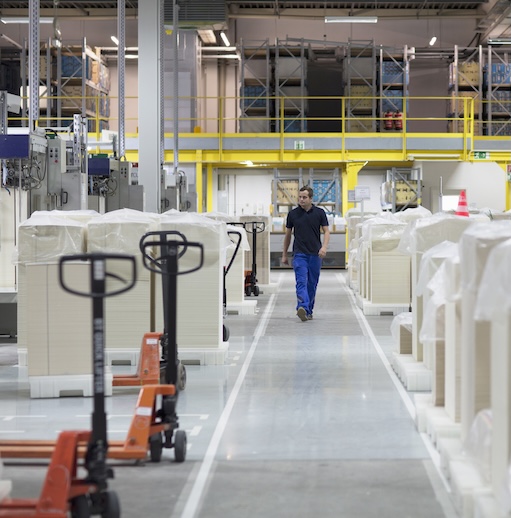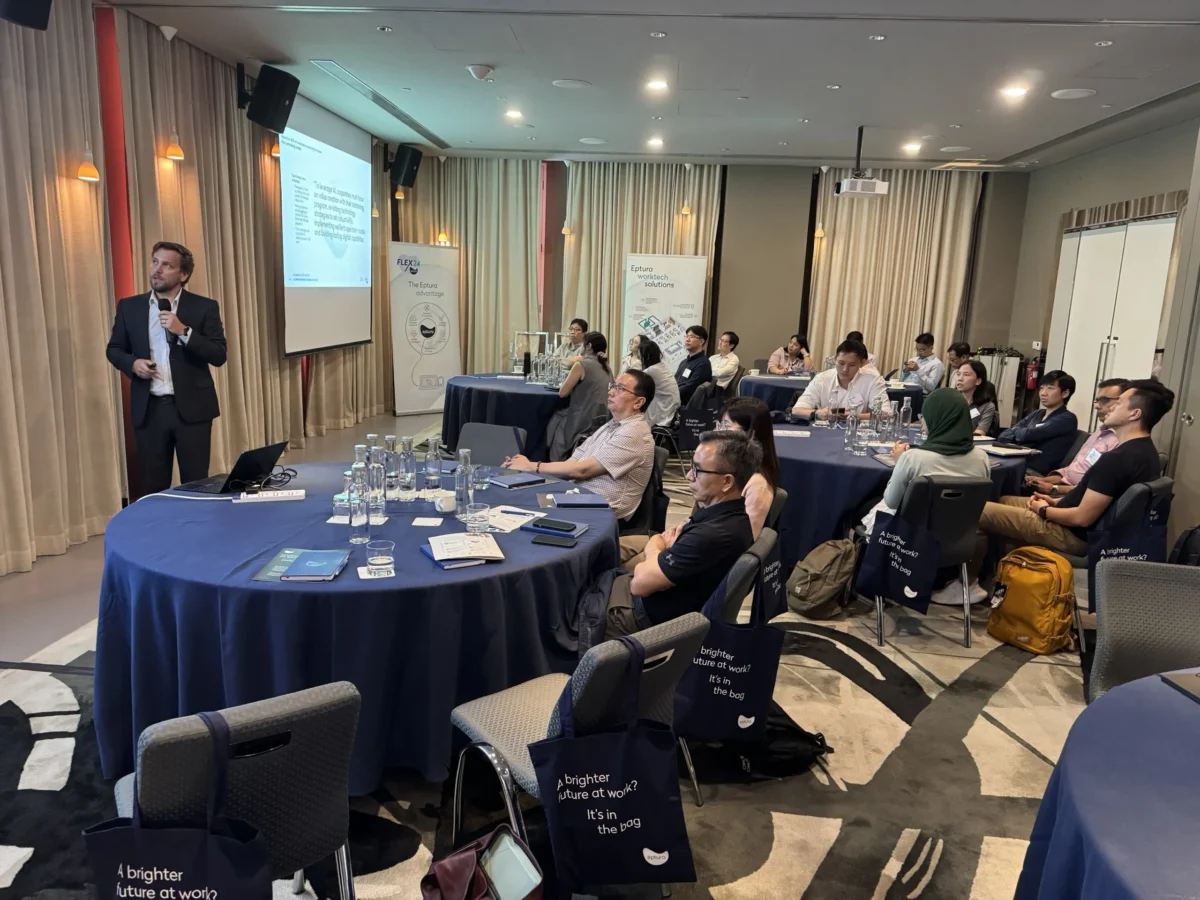
As hybrid work models continue to evolve, organizations are navigating complex challenges, from optimizing space utilization and enhancing employee experience to efficiently maintaining facilities and meeting regulatory goals. Eptura’s Flex/24 events provided a valuable platform for leaders across various industries, including banking, tech, and government, to share best practices and discuss upcoming trends and innovations.
Held in nine major cities — Atlanta, Chicago, New York, Mountain View, London, Singapore, Canberra, Melbourne, and Washington, DC — from March through July 2024, the events brought together over 400 professionals from global enterprises. Attendees gained actionable insights and practical guidance on leveraging worktech to drive success and manage facilities more efficiently, fostering meaningful connections and exchanging ideas to empower change and innovation in their workplaces.

Core trends supported by Eptura research
The 2024 Workplace Index report, a compass for navigating the changing world of work based on data from Eptura’s worktech platform, fueled the inspiring discussions at Flex/24.
The index findings, which showed operational leaders prioritizing worktech investments in data analytics and platform integration to create collaborative, sustainable, and efficient workplaces, were reinforced by speakers and attendees.
Many attendees shared challenges in successfully bringing their teams back to the office, and insights from Eptura’s research and best practices from speakers empowered them with new ways to “magnetize” their workplaces using integrated worktech solutions.
Connecting data by unifying operational technology
Another key theme of Flex/24 was exploring strategies to address data gaps within the building life cycle. Through a strategic alliance, Eptura and Autodesk are enabling organizations to easily leverage rich datasets from the design phase directly within building operations systems. Autodesk speakers across the Flex/24 events globally shared how businesses are seamlessly integrating building information modeling (BIM) data into facility management systems to optimize how their buildings operate.
Technology continues to play a key role in revolutionizing the workplace. At Flex/24 New York, Citrin Cooperman Director of Information Technology Jed Balido covered the key influences to track, including generative AI, cloud computing, information security, automation, and master data management.
Andrew Lim, Research Director at JLL, highlighted that a staggering 92% of companies see worktech as a key driver of competitive advantage. Yet the Workplace Index research reveals a gap between this ambition and reality. While 50% of businesses are embracing integrated worktech platforms, many are still navigating the early stages of digital transformation.
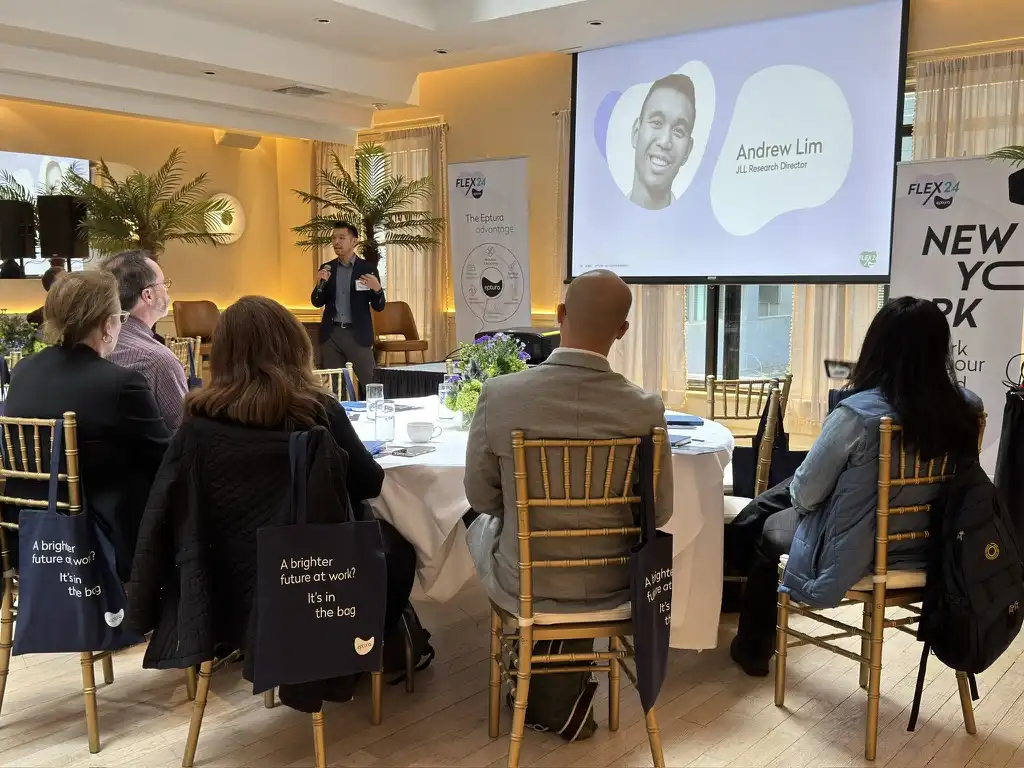
Attendees worldwide expressed a growing need to transition from managing hybrid work arrangements to harnessing data and technology for strategic advantage. To achieve this, they are increasingly standardizing their data and consolidating fragmented systems.
This sentiment was echoed by JLL’s Thomas Mackean at Flex/24 Singapore, who described a growing demand for smart buildings. This journey, he explained, begins with basic tools like spreadsheets and evolves into sophisticated AI-driven systems, demonstrating the industry’s ongoing evolution.
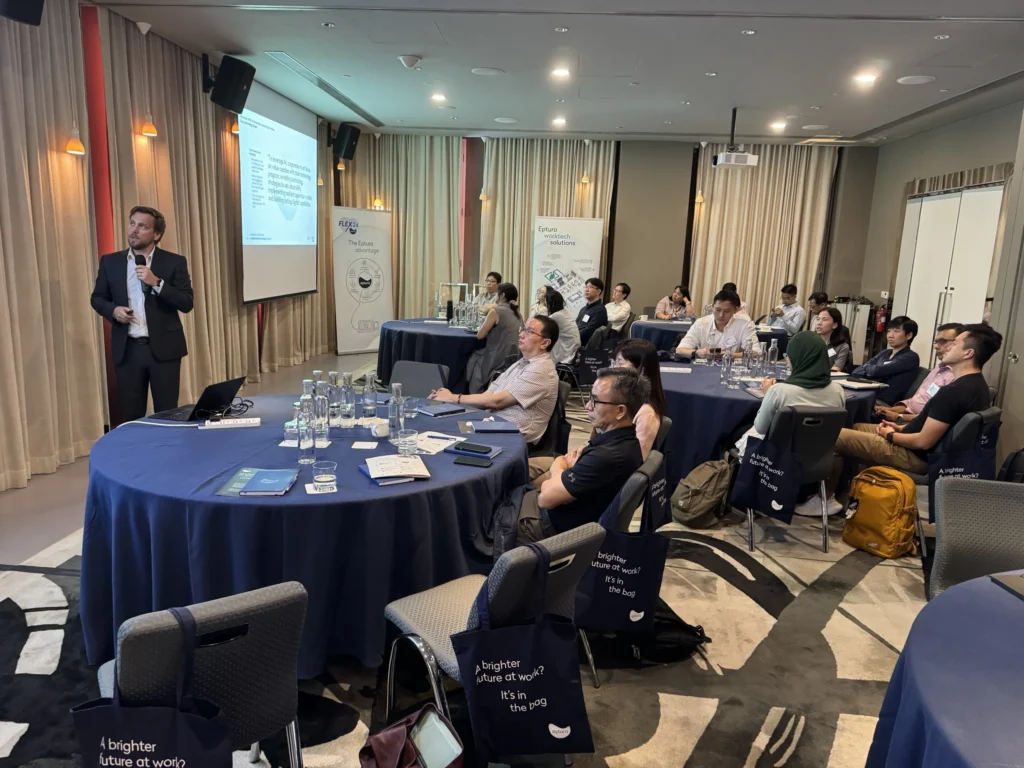
In Washington, DC, Flex/24 brought workplace and facility leaders from U.S. government agencies together to hear how federal employees are applying tech in the built environment.
An infrastructure leader who manages defense assets explained that their agency is moving away from overly customized systems, which currently take up to 18 months to upgrade because of their complexity. Instead, they plan to use more configurable tools to streamline their processes. His recommendation for successful tech implementation is to gain alignment across operations and IT, communicate transparently, and set strong governance.
An inventory manager at heath care focused agency shared how they use Archibus to understand their space inventory and identify inefficiencies to repurpose underutilized areas into patient care spaces.
Federal agencies in attendance also indicated more openness to embracing the Federal Risk and Authorization Management Program (FedRAMP) when selecting cloud solution providers. FedRAMP promotes the adoption of secure cloud technologies, ensuring the protection of federal information and enhancing their use of configurable options to improve security.
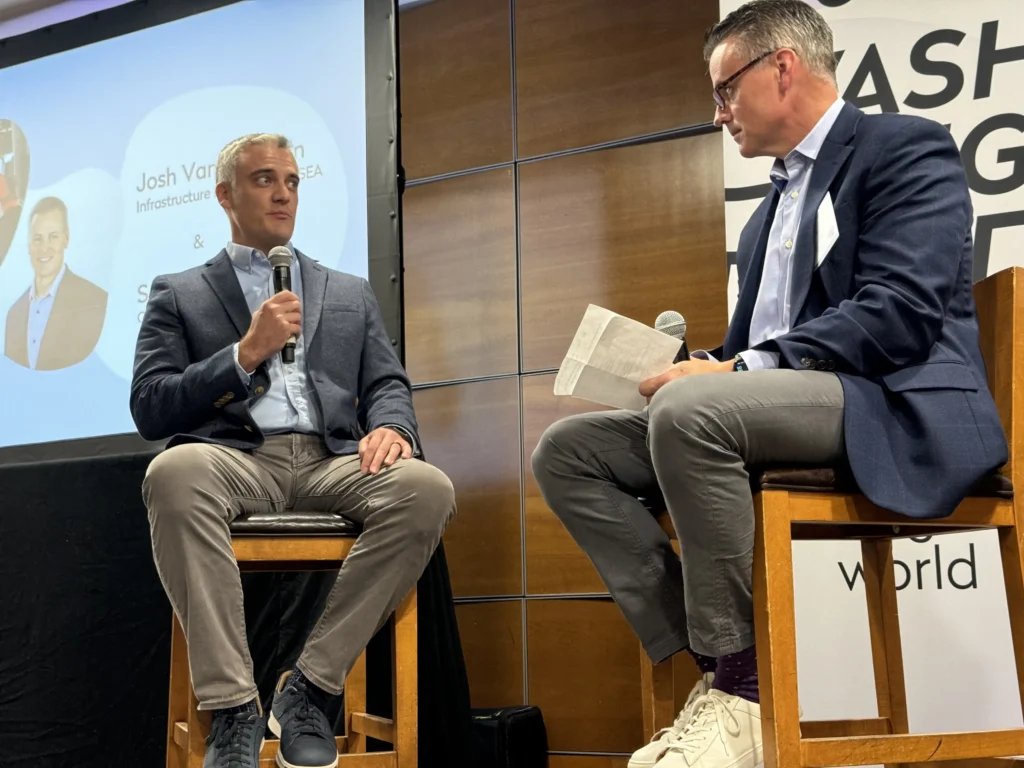
Creating a frictionless employee experience
Of the 400+ attendees at the Flex/24 events, many conversations revolved around a central question: How do we get people back into the office? Atlanta speaker Derek Goshay, VP Safety & Sustainability at Genuine Parts Company, shared the cultural shifts that have taken place throughout the return-to-office process as they adopted a Google-inspired campus approach. Qualcomm Senior Manager of Facilities Planning Michael Ippolito shared in Silicon Valley that occupancy trends differ for their business across global regions, with APAC leading on in-office attendance.
In fact, the 2024 Workplace Index report revealed a significant year-on-year increase in workspace booking: 27% in the Americas, 52% in APAC, and 31% in EMEA. While this data indicates a positive attendance trend, it also underscores the need for integrated technology to streamline operations. John Hilderbrands, Eptura’s VP of Solutions Engineering, stated at Flex/24 London that “booking is not a goal, but a superfluous action that helps achieve an outcome [like collaboration] and allows people to work the way they want to work.” To facilitate a more seamless in-office experience, enterprises are leveraging technology like Eptura’s automated check-in functionality which uses AI to alleviate the need for employees to locate the right type of workspace.
In Chicago, Drew DePriest, McKesson’s Director of Real Estate Operations Technology, recommended starting with the question: What tech is important to the business? For him, it’s the ability to collaborate asynchronously and for business continuity. The purpose of tech in the workplace is also to become more anticipatory — something enterprises can become stronger at when empowered with comprehensive data. This conversation contributes to the overarching theme of using data to predict trends in office utilization and to remove barriers to a collaborative employee environment — core capabilities that Eptura enables.
Hitting sustainability targets with tech
Sustainability was a major focus for attendees at all Flex/24 events. A prime example is Royal London’s office move, led by Workplace Design Manager Graeme Roberts, where they prioritized furniture reuse and saved a remarkable 44 tons of CO₂ by diverting waste from landfills.
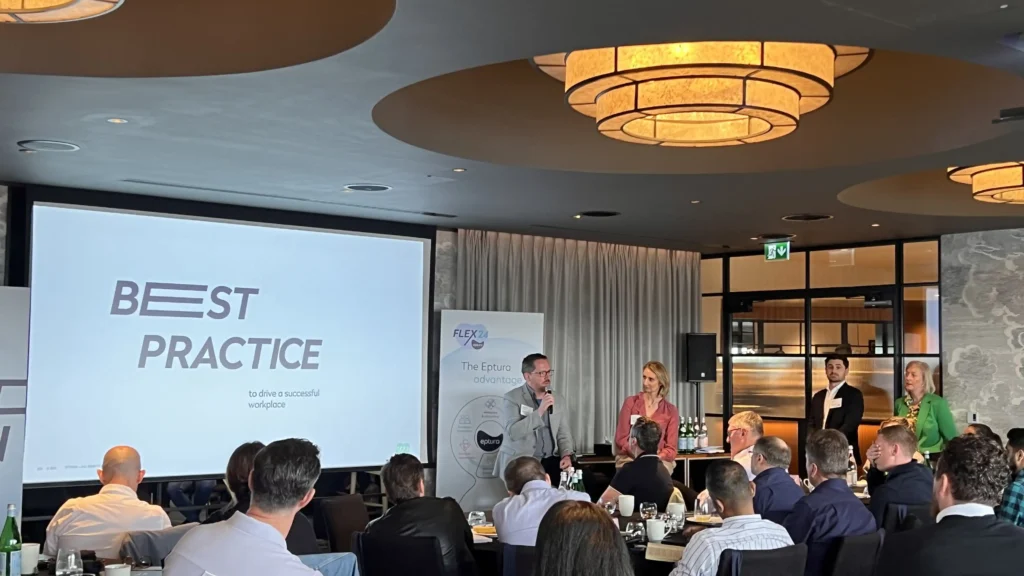
Fabrice Martin, Eptura’s Chief Product Officer, emphasized the massive opportunity for businesses to use sustainability and green building management tools to hit their targets, such as waste reduction and lowering their carbon footprint. Since nearly 40% of the world’s carbon emissions originate from buildings, leaders can leverage data generated by integrated technology to achieve sustainability goals. This can be done by identifying opportunities to optimize space utilization and modernizing facility maintenance processes.
Tim Rijnders of sensor provider VergeSense echoed this at the APAC events, stating that “the impacts of unused space on ESG are significant. Buildings are responsible for 37% of global carbon emissions and 34% of energy demand. Optimizing our footprint is one of the most effective ways to contribute [to ESG efforts].” He also stressed the need to match workspace layout with employee behavior by using data insights to create the best working environment.
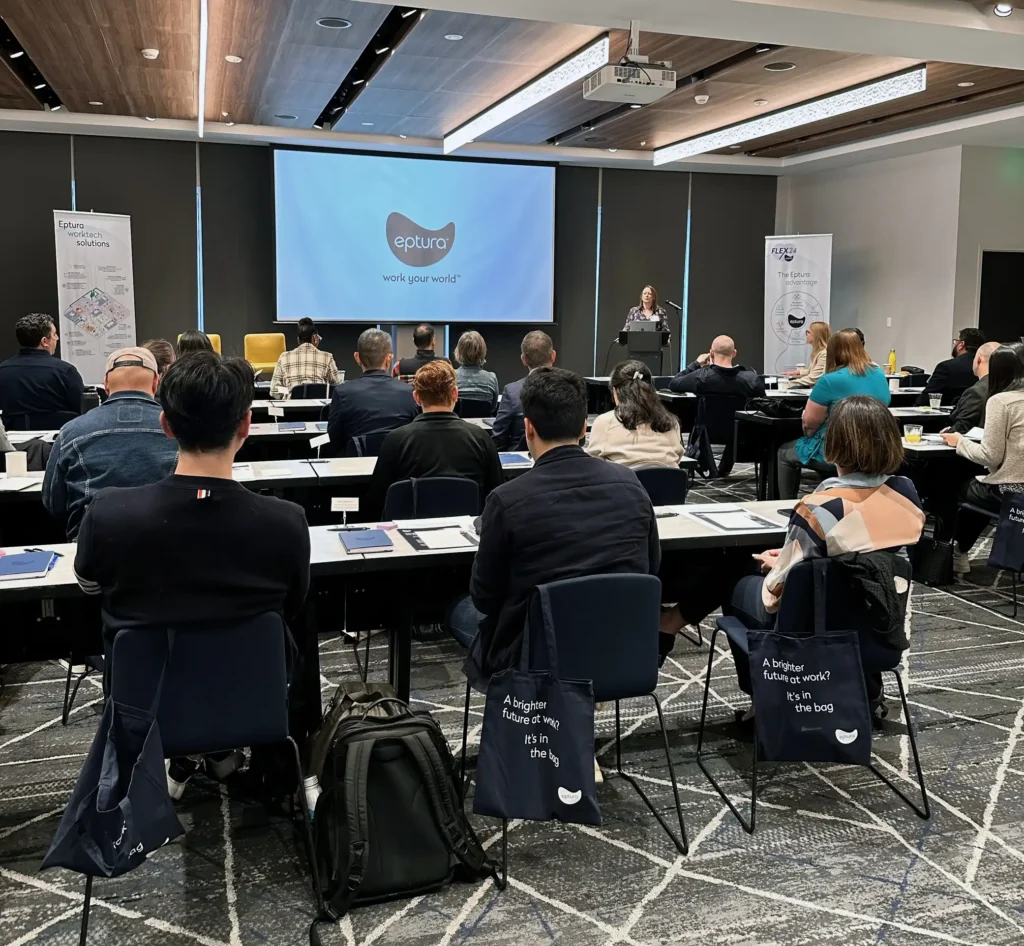
These possibilities and insights were crucial considering most speakers said that reaching net-zero emissions by 2050 was a huge focus for the future, including McKesson’s Drew DePriest. Drew mentioned at Flex/24 Chicago McKesson’s goal to reach a 50% reduction in carbon emissions by 2032.
The New York event saw in-depth discussions about Local Law 97 — an ambitious municipal program for reducing building carbon emissions. JLL shared that they are actively engaged in understanding this legislation’s impact on tenants and property owners, as well as the corresponding guidelines and penalties enforced by agencies until 2040. The legislation will also impact the New York City Department of Citywide Administrative Services, whose IT Business Support Director Clara Gomez shared how they manage and lease public buildings throughout the city. These examples highlight the growing urgency for businesses to implement sustainable practices, and to integrate the appropriate technology to achieve this as seamlessly as possible.
Rooms filled with leaders committed to change
Flex/24 fostered important conversations about making operations easier, improving the employee experience, and meeting environmental goals. Our discussions with industry leaders highlight the transformative potential of integrated worktech solutions. Together, we can build workplaces that are not just efficient, but also inspiring.
Explore our consultancy services to discover how Eptura can help you lead workplace transformation to meet your strategic goals.



